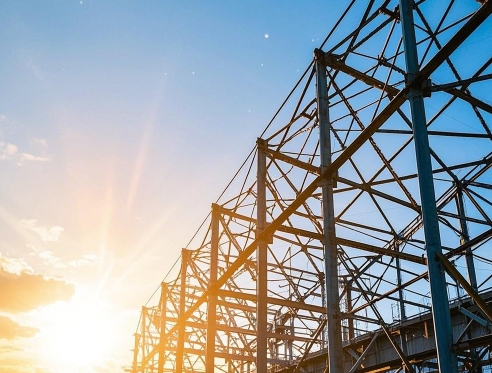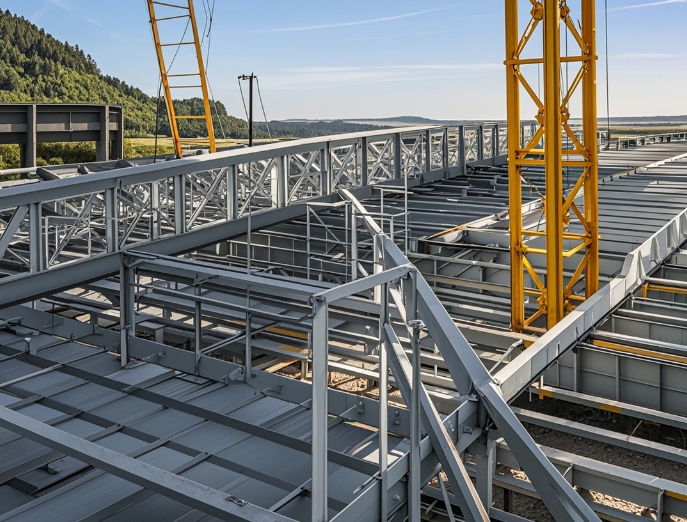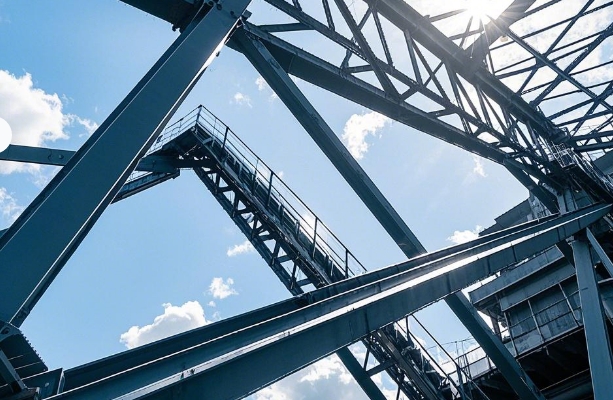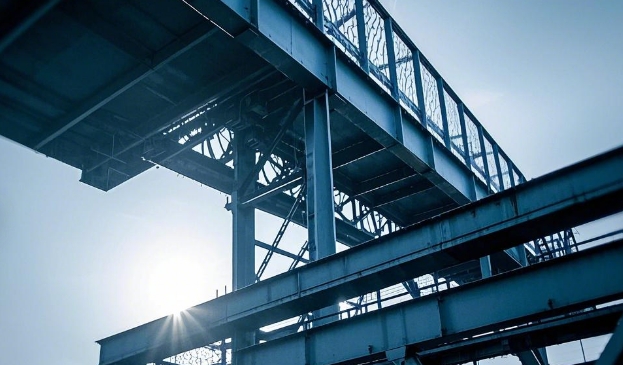Analysis of load and force of grid structure
更新时间:2020-12-28 15:43:32•点击:63703 • Industry Views

Grid structure load and stress analysis, grid structure loads mainly include permanent load, variable load, temperature effect and seismic effect, as follows:
Force analysis of grid structure
The force aspect of the grid structure: when the rod is under tension, the force transmission route is tension-steel pipe-cone or sealing plate-bolt-steel ball; at this time, the sleeve is not stressed. When the rod is compressed, its force transmission route is the pressure plate-steel plate-cone or sealing plate-sleeve-steel ball. At this time, the bolt is not stressed, and the pressure is transmitted by the contact surface between the parts. The grid sealing plate and the cone head mainly play the role of connecting steel pipes and bolts, and bear the tension and pressure from the rods. When the pipe diameter of the rod is greater than or equal to 76mm, it is advisable to use the taper connection; when the pipe diameter of the rod is less than 76mm, the sealing plate can be used for connection.
The reticulated shell structure is divided according to the number of layers. There are mainly single-layer reticulated shells, double-layer reticulated shells and three-layer reticulated shells; according to Gaussian curvature, they are divided into reticulated shells with zero Gaussian curvature, reticulated shells with positive Gaussian curvature and reticulated shells with negative Gaussian curvature. ; According to the surface shape, it is divided into cylindrical reticulated shell, spherical reticulated shell, double-sided parabolic reticulated shell and complex curved surface reticulated shell.
According to the analysis of some grid structures using the mode decomposition reaction popularization method, it is shown that in areas with fortification intensity of 6 degrees or 7 degrees, under the action of vertical earthquakes, the seismic internal forces and displacements of the grid are not significant. To the seismic check. In areas where the seismic fortification intensity is 8 degrees or 9 degrees, the grid structure should be subjected to vertical seismic check and horizontal check.
Grid structure load
1. Permanent load
The permanent load acting on the grid structure includes the self-weight of the grid structure, floor or roof structure, insulation layer, suspended ceiling, equipment pipeline and other materials.
2. Variable load
The variable loads acting on the grid structure include roof or floor live load, snow load, ash load, wind load, and suspended crane load. The snow load and roof live load need not be considered at the same time, and the larger value of the two .
For the surrounding support, the wind load of the grid frame with the support node in the upper chord is borne by the surrounding walls, and the wind load may not be considered in the calculation; for other support conditions, the horizontal wind load should be considered according to the actual engineering situation. Due to the good stiffness of the grid frame and the small natural vibration period, the influence of wind vibration coefficient can be ignored when calculating wind load.
3. Temperature effect
Temperature effect refers to the additional temperature stress generated by the grid members due to temperature changes, which must be considered in calculations and structural measures.
4. Seismic action
my country is an area prone to earthquakes, and the effect of earthquakes cannot be ignored. According to my country’s "Technical Regulations for Spatial Grid Structures", when the surrounding support grid is built in areas with a design intensity of 8 degrees or above, vertical seismic action should be considered; when built in areas with a design intensity of 9 degrees, the Should consider horizontal seismic effects.
Recommended Reading
-
Full analysis of seismic design and maintenance of grid structure
2025-02-27 16:16:52•191370 次
-
What are the key process points to follow in order to ensure the quality of grid processing?
2025-02-27 11:21:00•56520 次
-
What type of construction is the grid mainly suitable for?
2025-02-25 16:42:00•64448 次
-
Quality control requirements of grid manufacturers!
2025-02-25 16:02:44•98773 次






